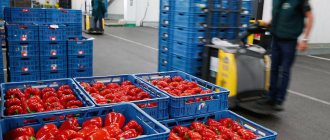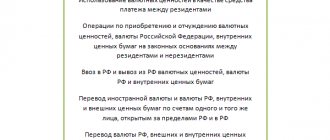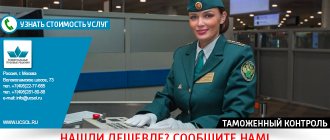Home > Blog > Phytosanitary control at customs
Quick links
Customs Delivery Certification Labeling Inspection
Phytosanitary control is a set of measures, the implementation of which is aimed at improving the quality of plant products imported into Russia, as well as ensuring the safety of the country’s biodiversity from the influence of quarantine objects growing in other countries and capable of harming the Russian flora.
Phytosanitary control, also called QFC or quarantine phytosanitary control, is carried out both during import and export.
What categories of goods fall under phytosanitary control?
All products of plant origin are subject to quarantine phytosanitary control, including such categories of products as:
- vegetables;
- fruits;
- coffee;
- cereals;
- flour;
- cereals;
- timber and timber (deciduous, coniferous and other types) and other categories of products.
The full list of categories of goods subject to phytosanitary control was approved by Decision of the Customs Union Commission of June 18, 2010 No. 318.
Exceptions, subject to the integrity of the consumer packaging*, are:
- tea, packaged in consumer/factory packaging, weighing no more than 3 kilograms;
- instant coffee, roasted beans and ground, packaged in vacuum packaging for retail sale;
- roasted nuts packaged in consumer/factory packaging;
- outer packaging made of corrugated cardboard;
*Consumer packaging means: metal, glass and polymer jars, bags made of laminated heat-sealable materials based on aluminum foil and metallized film, vacuum, sealed bags made of thick paper.
List of regulated goods
There is a list of all goods that constitute regulated products. This list includes all crop products, which include seed material, raw animal skins, fertilizers, various microorganisms that are transported for research work, lumber, cardboard containers and much more. An exception is made only for those products that are transported for personal use. It is allowed to import certain types of products without special permits, for example, packaged sugar, coffee, as well as medicinal raw materials, wool and some other items. However, their weight should not exceed five kilograms, otherwise the product will already require a permit. In recent years, with an increase in the supply of imported products, there has been a potential danger of introducing new pests into the territory, such as the Colorado potato beetle. That is why plant quarantine plays such an important role.
Phytosanitary risk levels
To implement the most effective control, all products of plant origin were divided into two levels of phytosanitary risk:
| Low level of phytosanitary risk | High level of phytosanitary risk |
| Passage of quarantine phytosanitary control (QPC) is required | Passage of quarantine phytosanitary control (QPC) is required |
| A phytosanitary certificate is not required . | is required . |
Products with a low level of phytosanitary risk include:
| Products with a high level of phytosanitary risk include:
|
To automate and speed up the processes of registration and recording of phytosanitary control documents, as well as to minimize the influence of the human factor, the FSIS “Argus-Fito” was developed, which maintains a unified database of phytosanitary documents, including:
- phytosanitary certificates;
- quarantine certificates;
- acts of quarantine phytosanitary control.
Objectives of phytocontrol
The state organizes phytosanitary control, which performs the following tasks:
- establishing phytosanitary security on its territory;
- organization of supervision over the implementation of the laws of the Russian Federation relating to phytosanitary control.
Therefore, the government adopted a Resolution, according to which any plant products transported across the borders of the Russian Federation undergo sanitary (phytosanitary) control. And the body responsible for supervision in the field of plant protection became the Federal Service for Veterinary and Phytosanitary Surveillance with its regional branches. This body with fairly broad powers is subordinate to the Ministry of Agriculture of the Russian Federation.
KFK venues
Quarantine phytosanitary control can be carried out:
| Officials of Rosselkhoznadzor | Officials of the Federal Customs Service |
| On the customs territory of the Union and on its customs border. | At the customs border of the EAEU, only in places established:
|
| They are authorized to conduct QFK for goods with both low and high levels of phytosanitary risk. | Authorized to conduct QFK only for goods with a low level of phytosanitary risk. |
| Samples and samples of products are taken for examination. | Documents for regulated products are being checked. If it is impossible to make a decision based on the documentary check, the information obtained is transferred to Rosselkhoznadzor officials. |
| Phytosanitary control is permitted only at checkpoints that are equipped in accordance with the requirements of the rules and regulations for plant quarantine. A complete list of places for quarantine phytosanitary control is defined for different regions and constituent entities of the Russian Federation:
| The Federal Customs Service is authorized to conduct documentary production as part of the QFK implementation at the following checkpoints:
|
Export of products of plant origin can be carried out at any checkpoint if all necessary permits are available.
Ambrosia as a quarantine object
Ambrosia wormwood is one of the common quarantine objects, a weed that was brought to Europe from North America at the end of the 19th century. Ambrosia causes enormous damage to agriculture, forming a branched root system and inhibiting plants growing nearby. Its root can reach four meters, and it takes up twice as much water from the soil as grains. The above-ground part of the plant grows up to two meters and shades the ears of grain from the light. During flowering, it becomes a strong allergen that can even cause pulmonary edema.
Ambrosia is difficult to control; it multiplies very quickly. When mowed, the residual stem produces several shoots, and the seeds have good germination, even at the stage of milky ripeness. The fight against this weed is carried out by combining different methods of agricultural technology, chemistry and biology, and on private plots it must be destroyed by uprooting.
The procedure for carrying out phytosanitary control
| For low risk products | For high-risk goods |
1. Preparation of a package of documents. To pass the QFK of low-risk goods, the following is required:
| 1. Preparation of a package of documents. To pass the QFK of high-risk goods, the following is required:
|
| 2. After the cargo of plant origin arrives at the border checkpoint, the prepared package of documents is sent to the department of special customs procedures (OSCP). | 2. Sending a written appeal to VNIIKR - the All-Russian Scientific Research Institute of Plant Quarantine, authorized by Rosselkhoznadzor to conduct selection and examination of products of plant origin. |
| 3. An inspector of Rosselkhoznadzor or an official of the Federal Customs Service carries out a documentary and/or physical inspection of the cargo. | 3. An inspector of Rosselkhoznadzor and/or an authorized employee of VNIIKR carries out a documentary check of the package of documents, as well as sampling and samples. The original phytosanitary certificate is confiscated. |
| 4. After passing the KFK, an o. is put on the transport documents. | 4. Examination of selected samples and specimens for compliance with established requirements and the absence of quarantine objects. |
| 5. The consignment passes the stage of customs control. | 5. After passing the QFK and receiving a certificate of quarantine phytosanitary control, the transport documents are marked with o. |
| 6. The consignment passes the stage of customs control. |
When exporting products of plant origin, a mandatory condition is the presence of a phytosanitary certificate issued by Rosselkhoznadzor.
Phytosanitary regime in Crimea
In the summer of 2015, in Crimea, in the Simferopol region, it was decided to introduce a phytosanitary regime. The reason for this was the spread of ragwort, which causes severe allergies. A quarantine phytosanitary zone was defined. All owners of regulated facilities, that is, plots, warehouses, transport, storage facilities, had to undergo a special examination, and products from the risk group also had to undergo phytosanitary control at all stages of production, storage and transportation to the place of sale.
Features of phytosanitary control
| |
| |
| |
| |
| |
Delivery and customs clearance of products of plant origin with all the nuances and compliance with the mandatory requirements for passing phytosanitary control is a difficult task. If you do not have the time or desire to understand the numerous details of import, export and passage of the CFC, contact the specialists of OnlogSystem. We are happy to answer any additional questions.
17.10.2019
Examples of a ban on the import of products
For example, in 2004, the phytosanitary control service suspended the import of flowers from some Western European countries. The reason for the ban was the spread of such a quarantine pest of greenhouse plants as California thrips. Bringing it into the country would cause enormous damage to greenhouses and greenhouses.
In 2005, Rosselkhoznadzor banned the supply of plant products from Moldova. This ban was due to the fact that the plant protection service of Moldova did not comply with international requirements for phytocontrol, and this could be fraught with the introduction of dangerous pests into Russia.
Requirements for regulated products
The processes of production, transportation, and in some cases destruction of products must meet certain requirements.
1. It is prohibited to release goods into circulation if they are infected with any pest; storage and transportation are possible only for disinfection or destruction. Then you need to store and transport these products separately from the rest.
2. It is prohibited to supply into the country products representing seed and planting material from those countries where pests characteristic of this type of product are widespread, unless phytosanitary control has been carried out by the relevant service.
Necessary actions when a pest is detected
1. When quarantine objects are detected, the owner of the product is urgently obliged to isolate it and immediately report this to the appropriate service.
2. Any of the possible quarantine phytosanitary measures is applied to those products in which the pest is found:
- product disinfection;
- its processing in one of the ways that can deprive the quarantine object of potential danger;
- if necessary, destruction of all products.
In the summer of 2021, at Strigino airport, phytosanitary control revealed 18 kg of plant products that were temporarily prohibited for import into the country and arrived from Azerbaijan - they were seized and destroyed. At Irkutsk International Airport, 22 kg of products were seized - tomatoes, peaches, grapes and others. The fact is that there is a decision that products arriving in Russia from Azerbaijan, Tajikistan and Uzbekistan in hand luggage must be destroyed.









